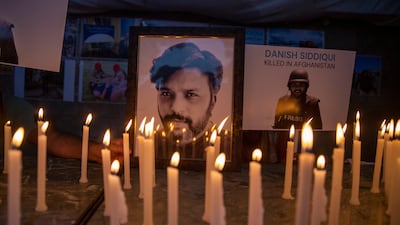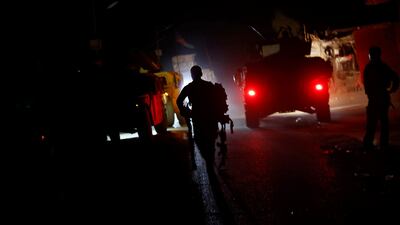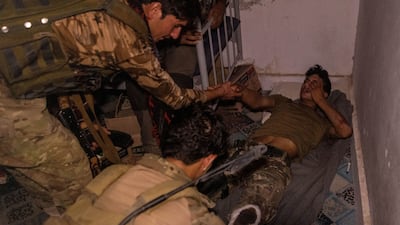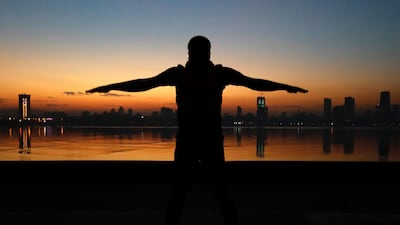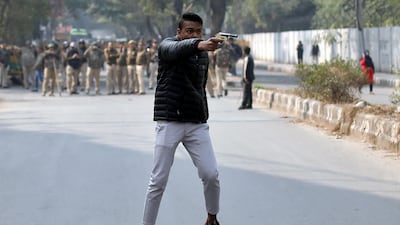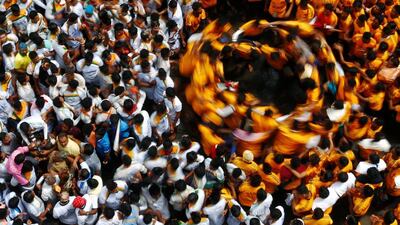The parents of killed reporter Danish Siddiqui filed a complaint with the International Criminal Court against the Taliban on Tuesday over their son’s murder in southern Afghanistan last year.
“The Taliban targeted and killed Danish because he was a journalist and an Indian,” said Avi Singh, the lawyer representing the Siddiqui family.
“In the absence of rule of law in Afghanistan, the ICC has jurisdiction to investigate and try the perpetrators of Danish’s murder.”
Siddiqui, a Pulitzer Prize-winning journalist, was killed on July 16, 2021, in the Spin Boldak district of Kandahar while embedded with the Afghan special forces who were fighting the Taliban.
He was reporting on the escalation of the Afghan conflict since the US and Nato forces started to withdraw their troops earlier in May, leading to the eventual collapse of the Afghan government weeks after Siddiqui's death.
The ICC has yet to respond to the complaint and request to investigate, but Mr Singh says the court's pursuit of figures such as Uganda's Joseph Kony or Sudan's former leader Omar Al Bashir show there is a precedent.
“We know it is a long and difficult journey we are undertaking but it is our moral obligation and responsibility to pursue this investigation and bring the perpetrators to justice,” Omar Siddiqui, Danish's brother, told The National.
Mr Siddiqui said the family also hope to raise awareness of the challenges and risks facing journalists in conflict zones.
While the Taliban denied responsibility for the attack, several independent investigations revealed that Siddiqui was captured, tortured and killed by the local Taliban group.
“After his killing, his body was mutilated, including being run over by a heavy vehicle in public,” a statement issued by the family said. “His body revealed marks of brutal torture and 12 bullet entry and exit points. These were received after his capture, as his bulletproof jacket has no bullet marks.”
“From multiple accounts, it is clear he was tortured and killed because he was a journalist and an Indian,” Mr Singh said.
“These acts and this killing constitute not only a murder, but a crime against humanity and a war crime.”
Siddiqui's best photographs
Witness accounts and photographic evidence reviewed by The National corroborate this claim.
“The body was with the Taliban for over a day; they collected all the information from us [about Siddiqui] … but they were not giving the body,” one local civil activist who was involved in negotiating the return of Siddiqui’s remains said on condition of anonymity.
“Finally, they agreed to give the body to the Red Crescent the next afternoon and it was brought to the hospital later in the night.”
The activist confirmed that the body had been mutilated.
“They had dishonoured his dead body; they ran over a car on his face. It was because he was Indian. Even though he was Muslim and has done some great work [in reporting],” he said, echoing statements from the Siddiqui family.
Aside from the unnamed perpetrators, the complaint also identifies seven Taliban leaders as having been involved in Siddiqui's death, including Taliban Supreme Commander Haibatullah Akundzada and Abdul Ghani Baradar, who is the current deputy prime minister of the Islamic Emirate of Afghanistan, a term used by the Taliban for their political entity.
“The Taliban leadership are responsible for the torture and killing of Siddiqui as well. They were aware of the incident and also have done nothing to punish the perpetrators,” Mr Singh said.
“It has been very painful these last few months for my family to deal with what happened with Danish. This will take a lot of time but it will bring a sense of relief to us,” Mr Omar Siddiqui added.
